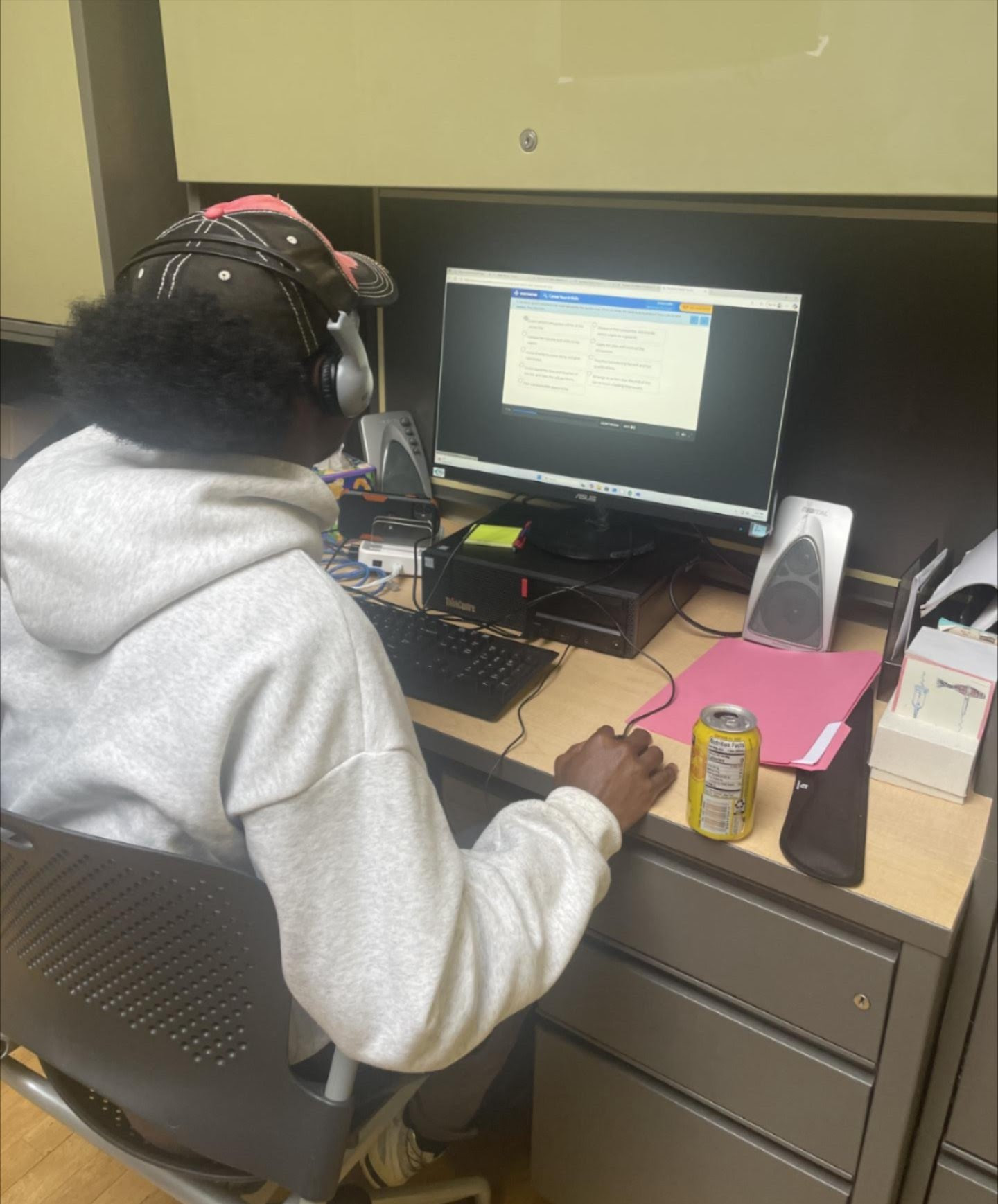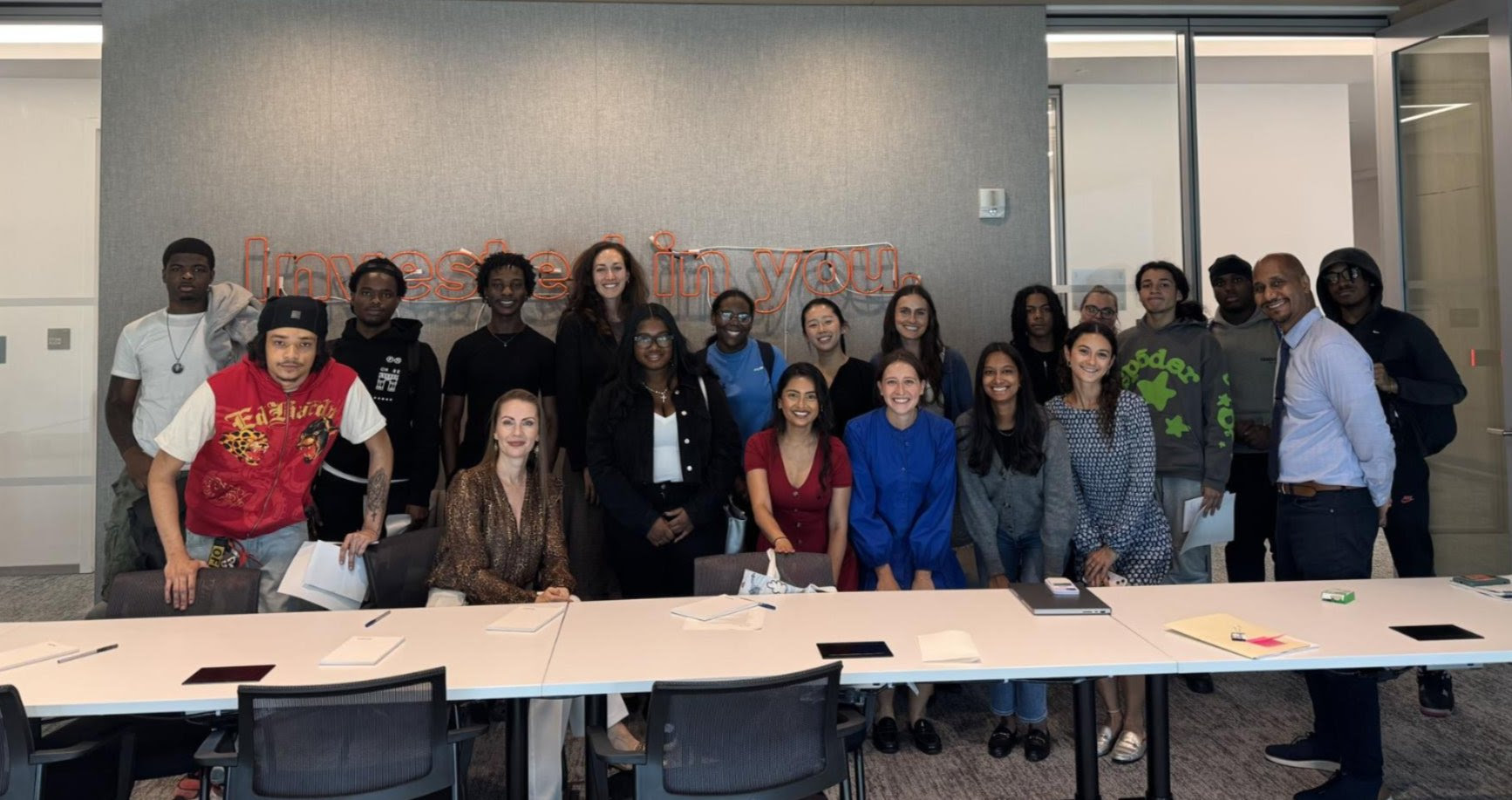
Avenues for Justice
100 Centre Street, Room 1541
New York, NY 10013
info@avenuesforjustice.org


ED's Note: Behind the Scenes at AFJ
Last week, I was on a call with peer criminal justice organizations across New York City. After the meeting, I found myself reflecting on how far we've come since the pandemic forced us to reimagine everything overnight. This included pivoting to remote services, adapting our workspaces and community centers, and finding new innovative ways to meet the needs of our Participants during unprecedented times.
Five years later, what strikes me most is this: while our language and approaches have evolved, the fundamental challenges haven't changed. Our Participants still face food insecurity, housing instability, academic challenges, employment uncertainty, and barriers to long-term mental health services. While we’ve made real progress, some challenging realities remain—a tension that feels like both a reality check and a call to action as we move forward.
What does it mean to truly see the barriers our young people face? Not the obvious ones we share in grant proposals, but the everyday gaps that determine whether someone can finish a school paper, show up to an interview, have food in their fridge at home or believe their story matters enough to be told on their own terms.
This Month at AFJ: What We're Proud Of
Third Paid Internship Cohort of 2025: Led by AFJ’s Job Developer, Shantel Brooks, we kicked off our third paid internship cohort of the year at the beginning of the week. It is our largest yet with 19 Participants! I'm excited to see the job readiness skills they develop these next 8 weeks.
But here's what we're really doing: seeing what our Participants need to cross the finish line. Not what we assume they need, but what they actually need.
Seeing Barriers in Real Time: Nelson Valentine, our Senior Court Advocate, recently told me how one of his prevention Participants, Kayla, broke her laptop the night before a paper was due. Nelson came to me while we were at our Lower East Side community center, and together we started looking for laptops across our two centers. The solution was simple thanks to one of our anchor funders: tell Kayla to stop by and we'll get her a laptop. Shortly after she turned in her paper to her professor, she texted me saying, “I got it done that same day I picked up the laptop from the LES center. I’m just waiting for my professor to grade it. Again, thank you so much. I’m thankful and really grateful to you and Nelson for my new laptop. May God bless you in so many ways for real!”
This moment is what I'm proud of. The commitment we have at AFJ to understanding the nuances and needs of our Participants beyond just their legal matters. We hold our young people to expectations that require resources they don't always have access to. We take technology for granted. Kayla manages school assignments with young children at home. Our Participants are navigating all of this: school, caring for kids, handling groceries, responsibilities that don't pause for deadlines or court dates.
That's what it looks like to actually see barriers in real time, address them and then move them out of the way.
Clint Smith at Harlem Community Center: Last month, we welcomed acclaimed writer and poet Clint Smith to our Harlem Community Center. Our Leadership Council Participants led a powerful discussion about his book How the Word Is Passed: A Reckoning with the History of Slavery Across America, moderated by AFJ’s Teen Empowerment & Leadership Council Facilitator, Dr. Dennis Ibude.
Smith shared his journey from New Orleans through Hurricane Katrina to becoming an author. He connected the history of slavery in ways that landed with our Participants. What hit me: several Participants said they'd never learned this history in school. They felt disconnected from what they were being taught.
Here's another barrier we don't talk about enough: when young people can't see themselves in what they're learning, we've already lost them. But when someone like Smith walks in and says, "Your story and history matters". The walls come down. Every Participant left with a signed book and personal time with Smith. This is what it looks like when we see barriers to engagement and actively dismantle them.

Spotlight: In the Press / In the Community
It's Not Too Late to Join Us At Our 2025 Impact Awards Dinner
In just two weeks, on October 23rd, we're coming together to celebrate the work of our young people who show up for themselves every single day and the communities that support them in their pursuit of the futures they identify for themselves.
Your presence matters. Your support makes it possible for AFJ to provide the laptops, the conversations with authors, the internship opportunities, and all the resources that meet young people where they are. When you show up, you're investing in a more just future where our Participants are seen fully, not just as case numbers, but as whole human beings with unlimited potential.
And our 2025 Angel Rodriguez Award Recipient, AFJ Program Graduate Kat Estrella, has exciting news to share with our attendees. You have to be there to find out what is next in her horizon!
Join us in celebrating what's possible when we lead with people first.
Hot Takes + Real Talk
The uncertainty around our City’s next Mayor looms large over everything we do. Leadership transitions always impact funding, but this limbo makes it nearly impossible to plan with any real confidence.
We've been doing this work consistently, adapting and showing up for our Participants, but where is the funding to sustain it? The criminal justice funding pot was already small. Now we're competing with immigration services, educational initiatives, and other critical needs. We're all trying to get pieces of a pie that keeps getting divided smaller.
I'm not complaining. I'm naming what's real. Here's what keeps me up at night: people see programs, but do they see the barriers? The laptop that breaks before the paper is due. The history lessons that weren’t taught. The grocery run that conflicts with the job interview. If we can't get resources to meet young people where the real barriers live, we're just moving deck chairs around. Some may even say that we are just shifting goal posts.
We need sustainable investment in alternatives to incarceration. Not just when it's convenient, but because it works.

The Sweetener in My Tea
The sweetener in this edition is AFJ’s very own Court Advocate, Stephanie Santana, who recently published her book Mental Health: The Battle No One Speaks On.
I'm committed to bringing voices like Clint Smith's into our conversations, but I'm especially proud that we have our own author right here at AFJ. Stephanie's book speaks directly to the struggles our Black and Brown communities face but rarely get space to name. We make it a mission to continue celebrating our team, and this is exactly that. Not all sheroes wear capes. Most "walk beside us each and every day." Stephanie, thank you for sharing your journey, struggles, and victories with us. We look forward to incorporating Stephanie’s book into our mental health wellness curriculum. Imagine the impact that this accomplishment will have on the young women that Stephanie provides court advocacy and case management to when they find out that their Court Advocate is an author!
When we amplify authors, whether they're visiting our centers or working alongside us every day, we're amplifying the stories and truths our Participants are living. When we make the invisible visible, when we name and address the barriers everyone dances around, we give our young people permission to name them too. To say "I need help" without shame. To ask for the laptop, to have the conversation around mental health struggles, and the chance to be seen fully.
When our young people see themselves reflected in literature, in leadership, in their Court Advocates, in possibility, that's when transformation becomes tangible. That's when the barriers start to come down.
That's the work I'm supporting. That's why AFJ keeps showing up.
Until next month,

Elizabeth Frederick
AFJ Executive Director